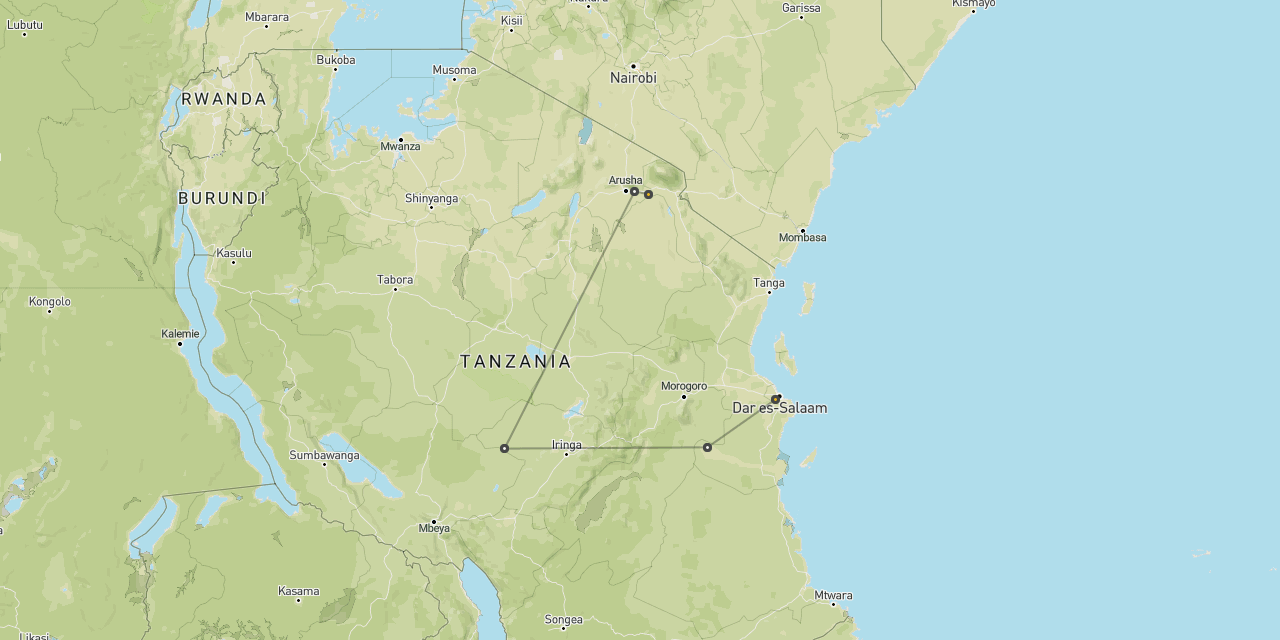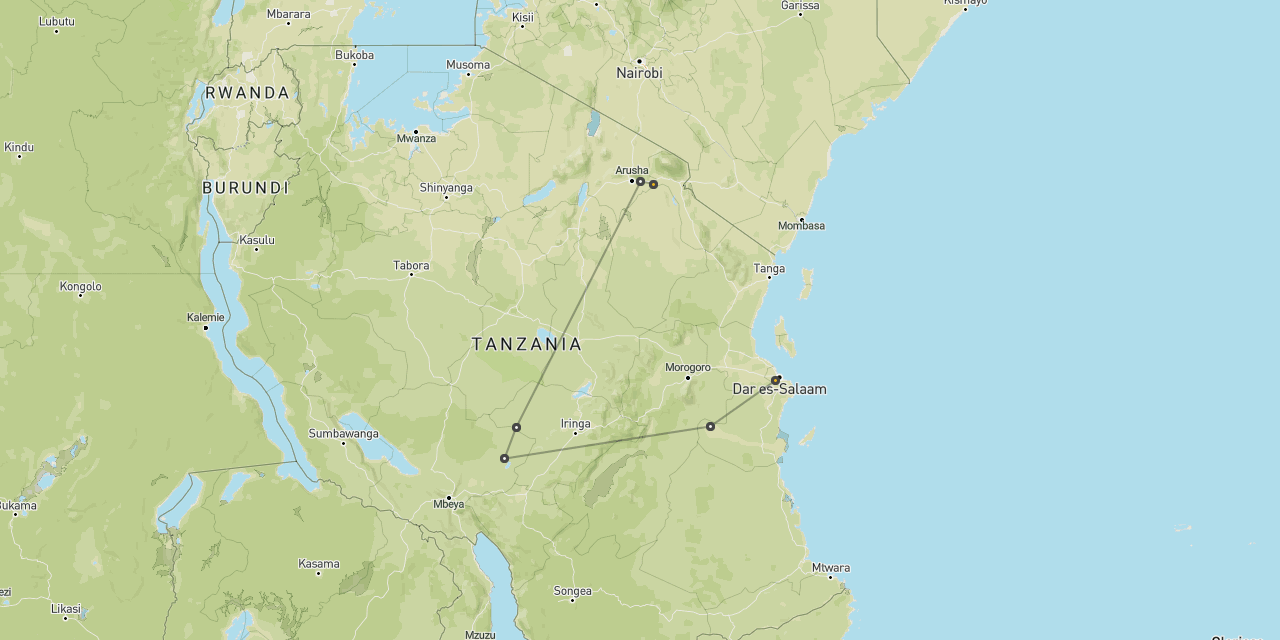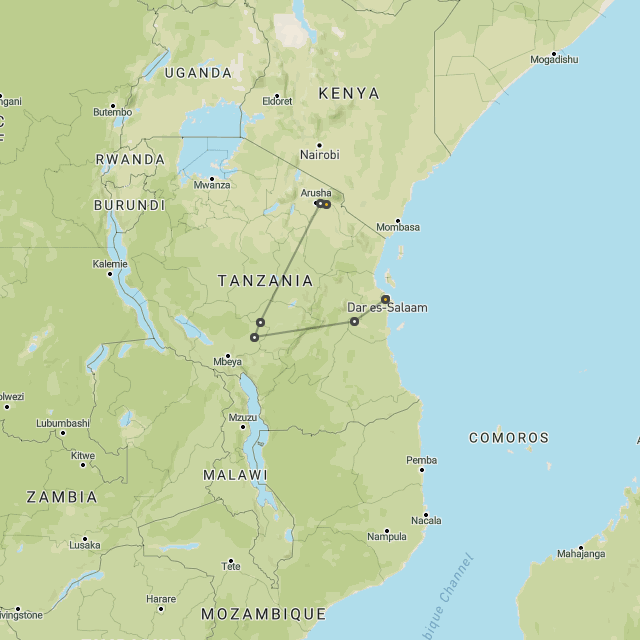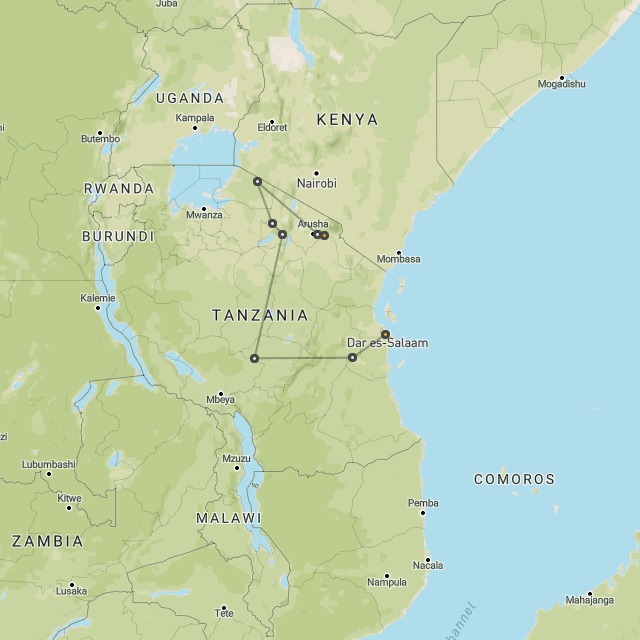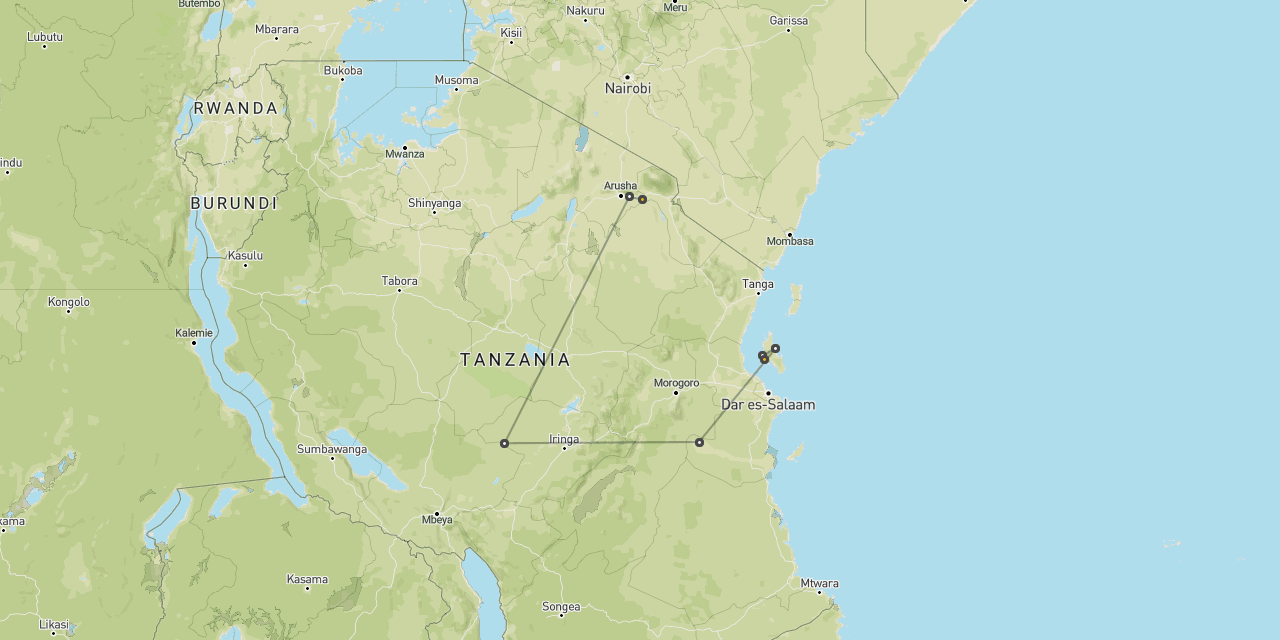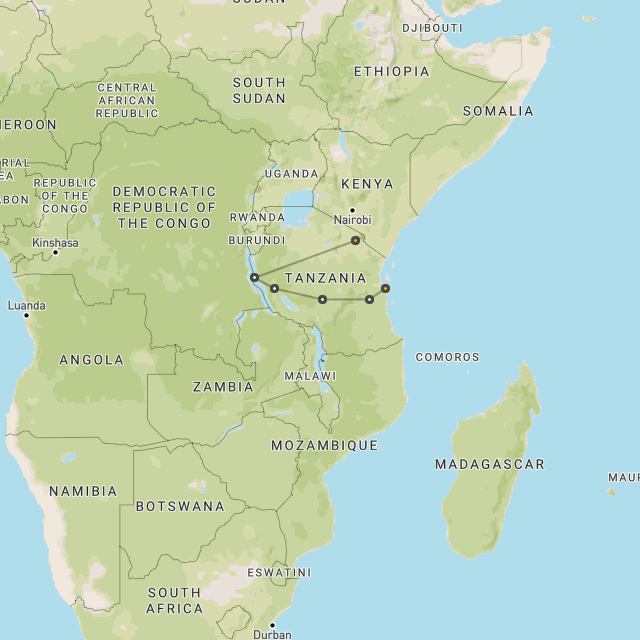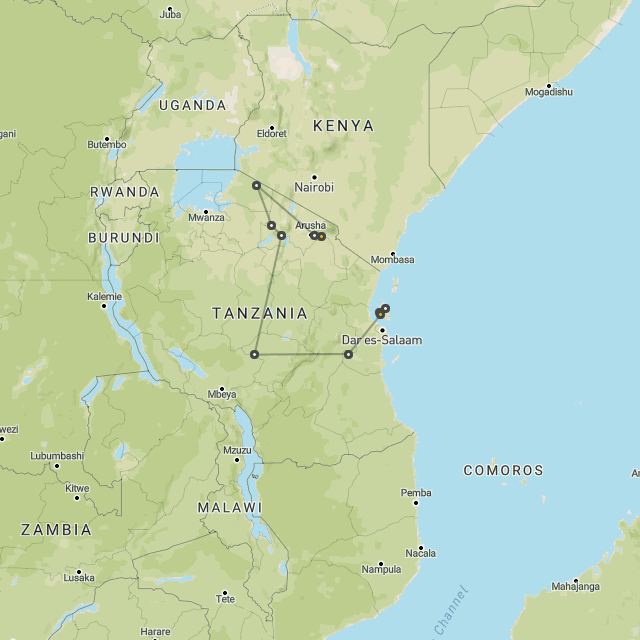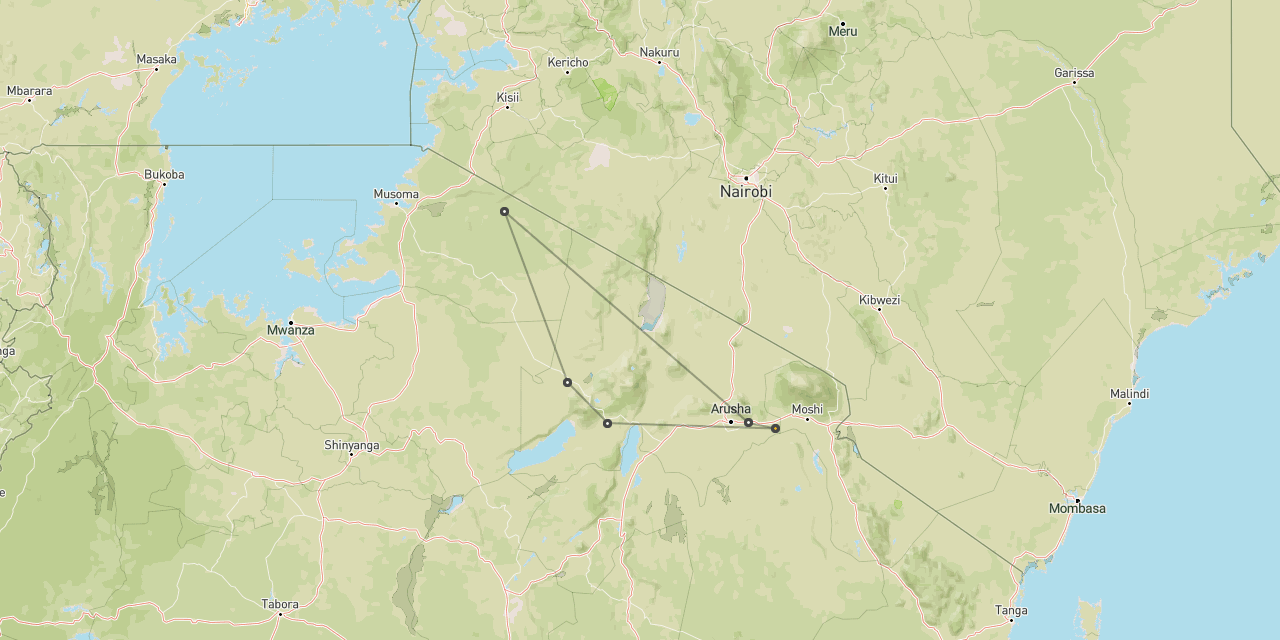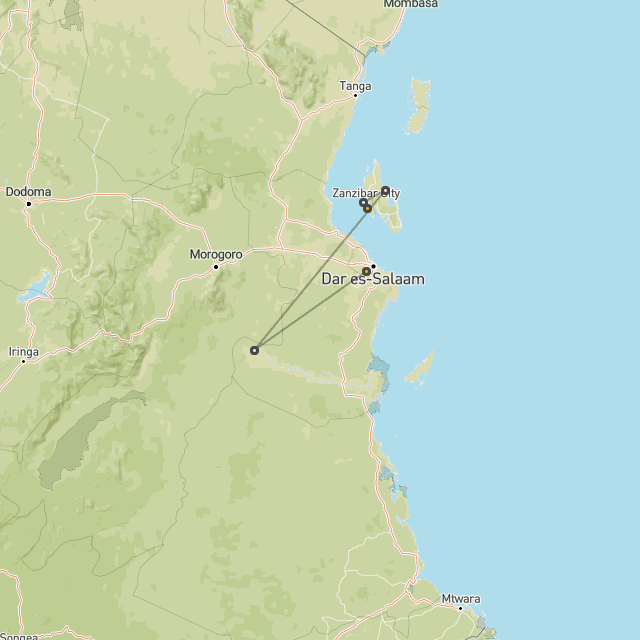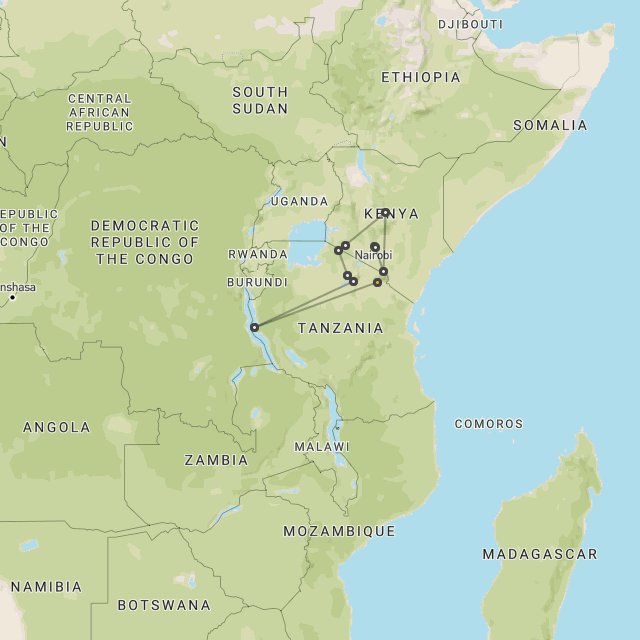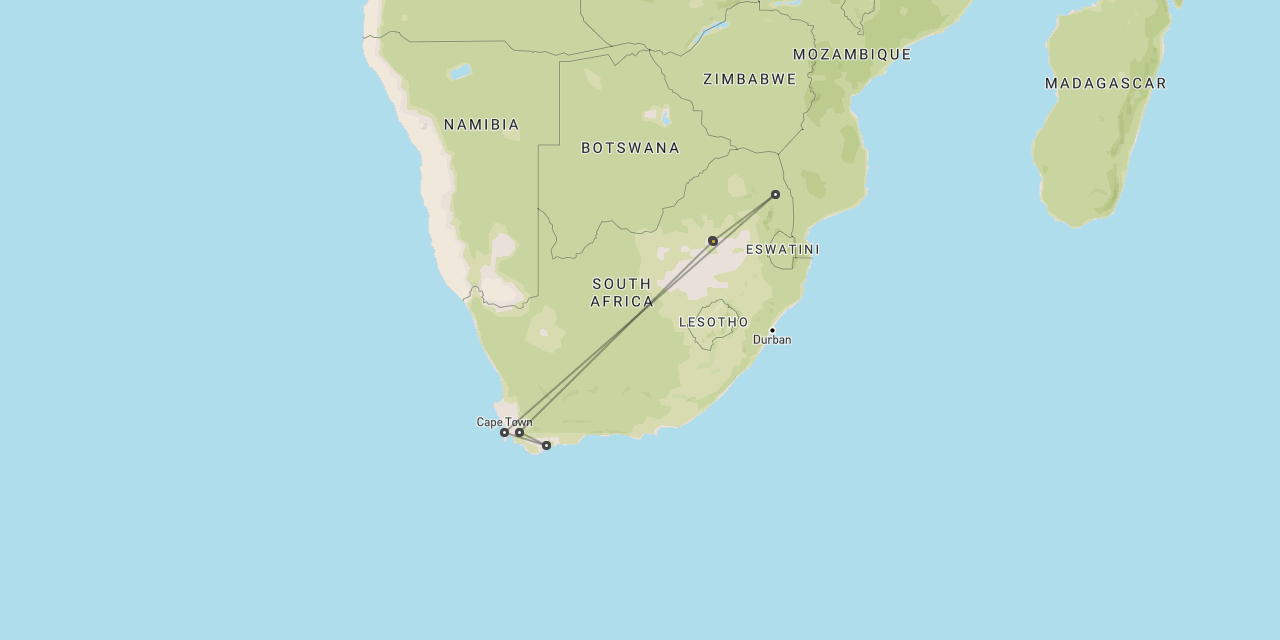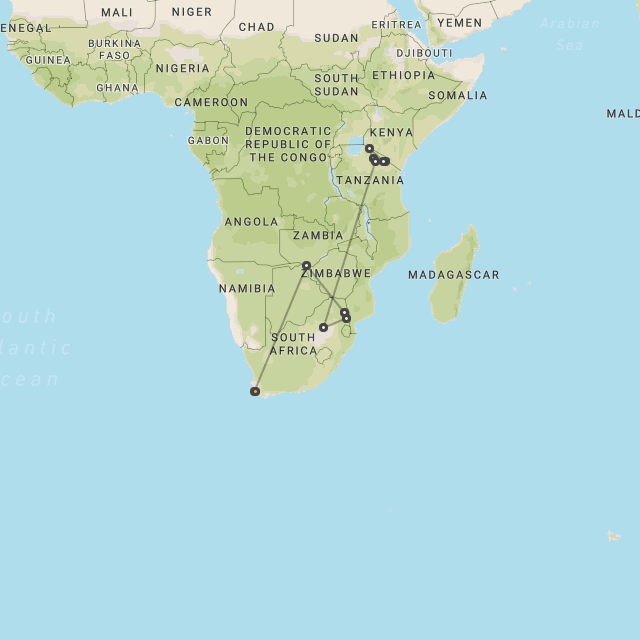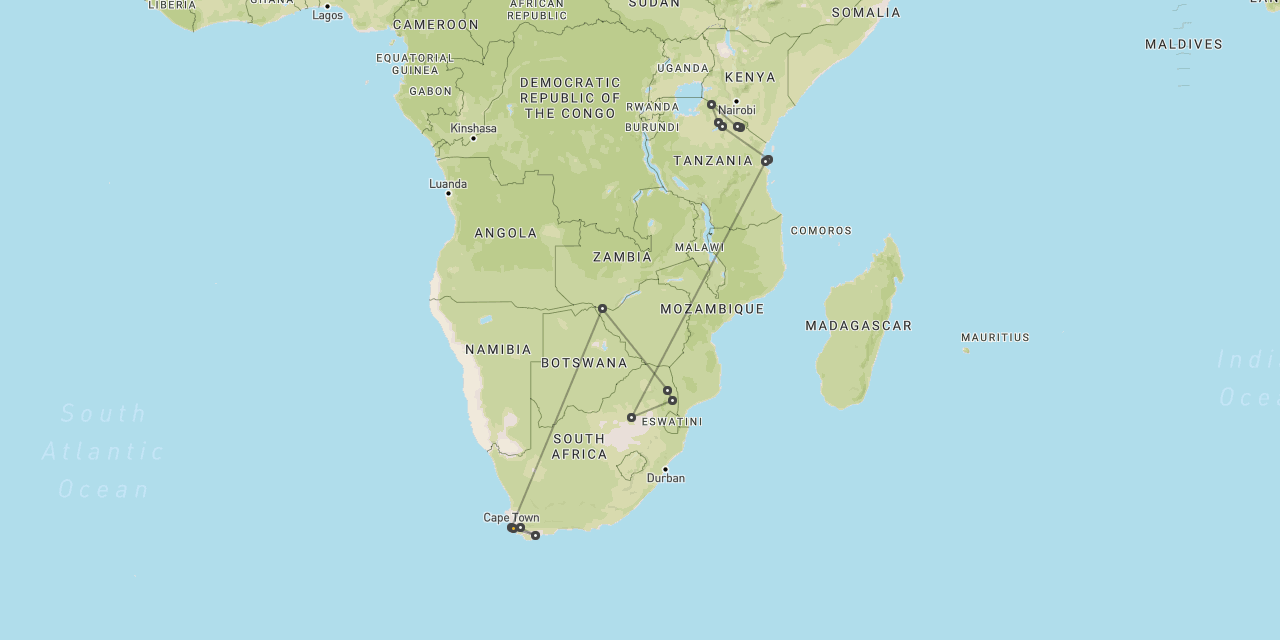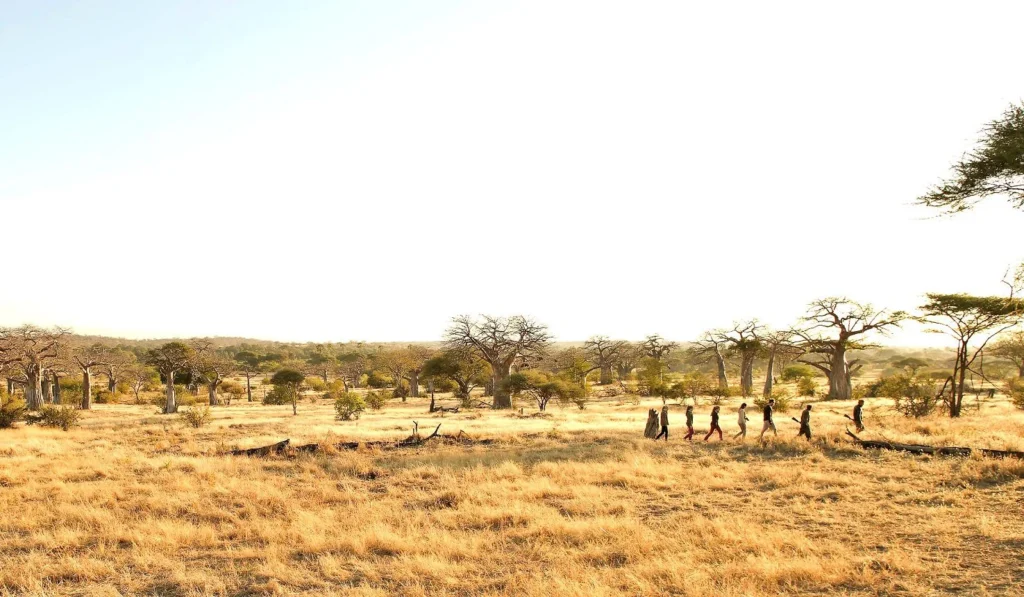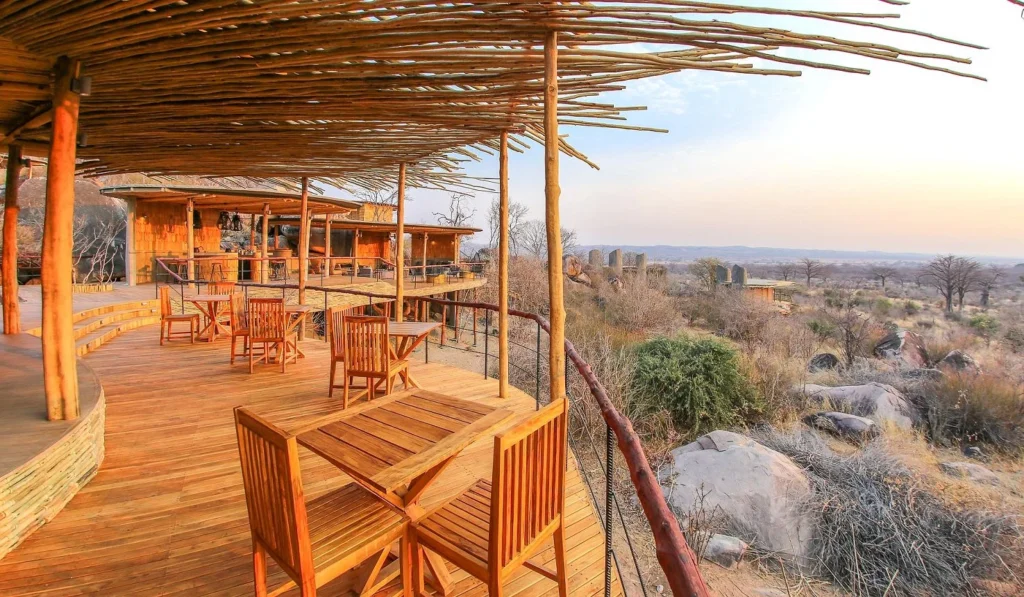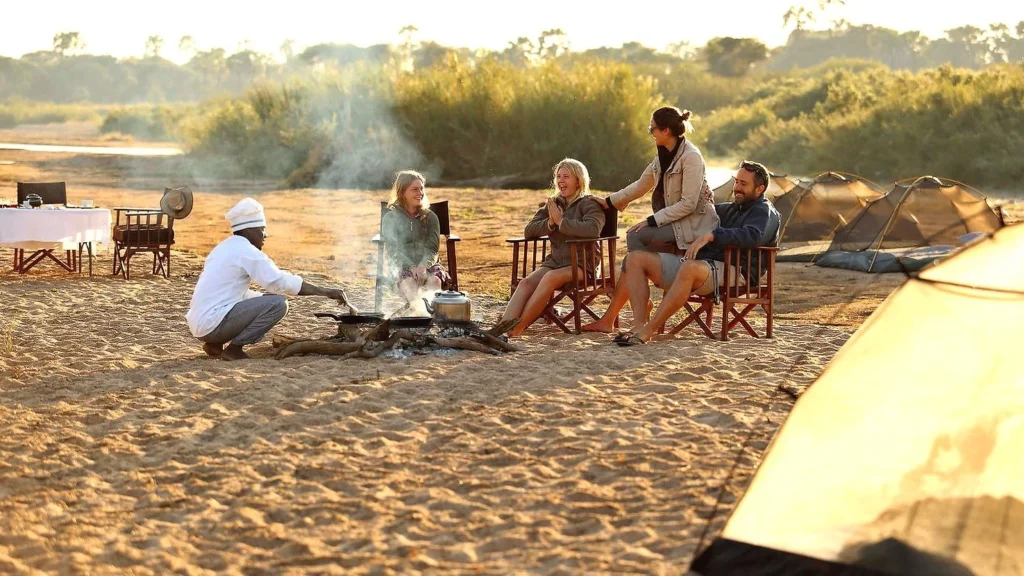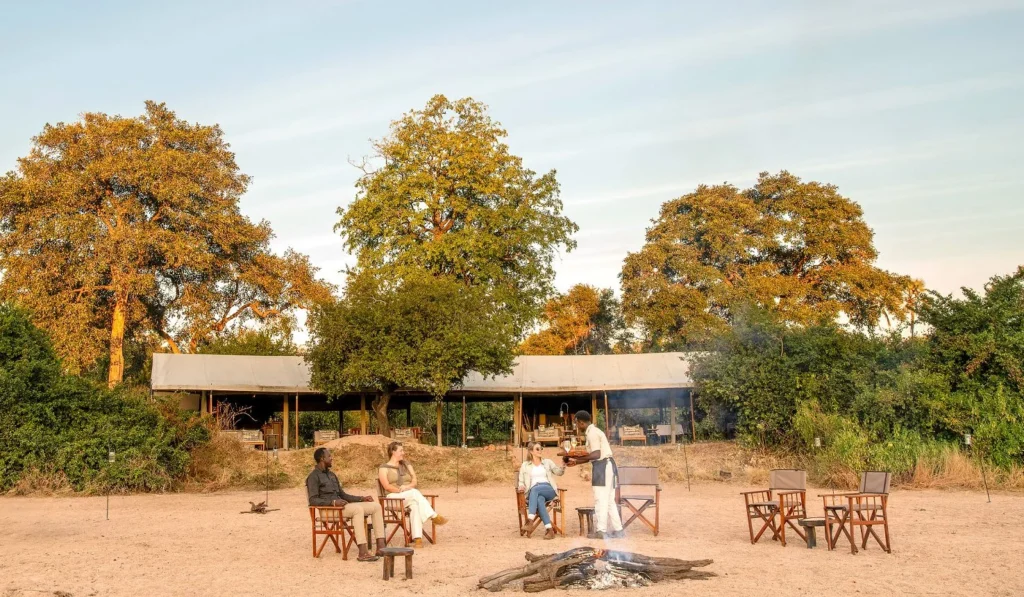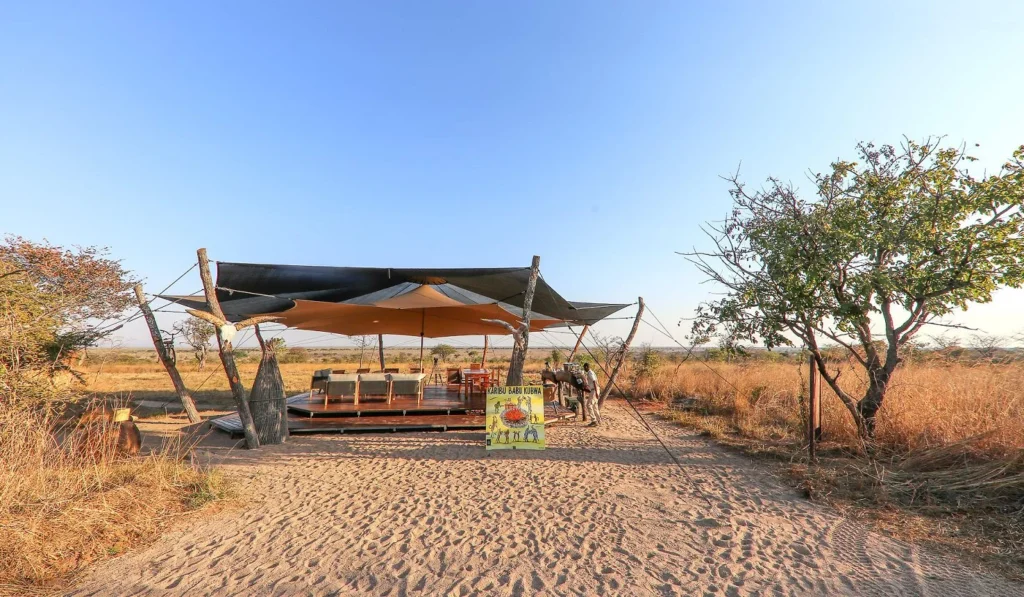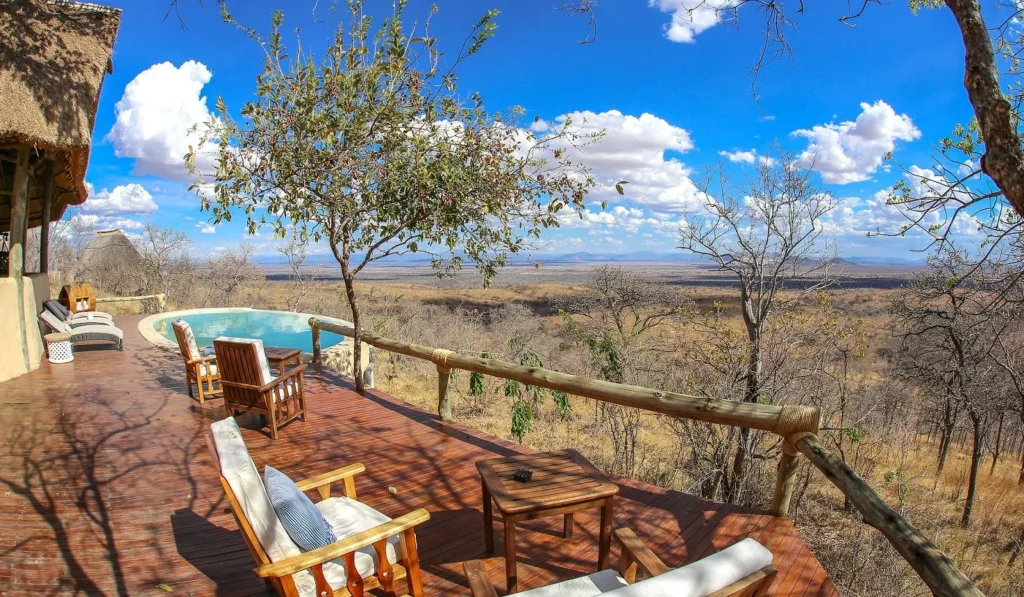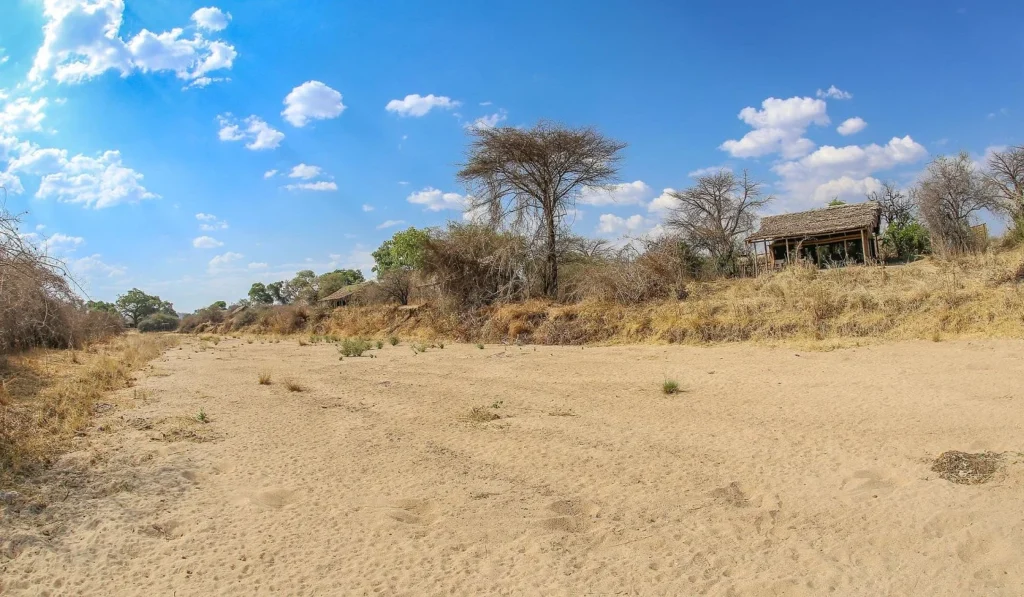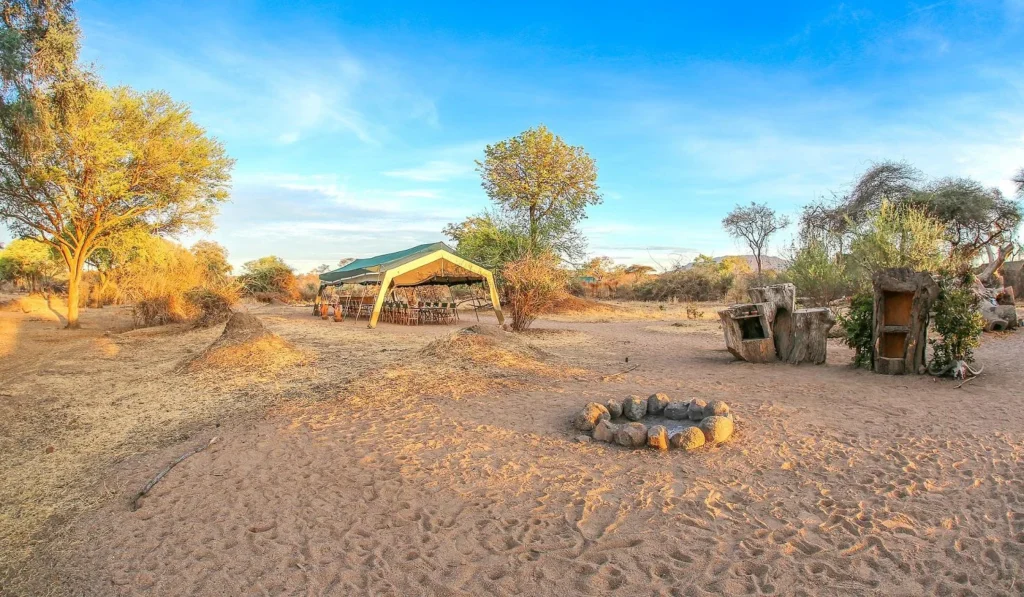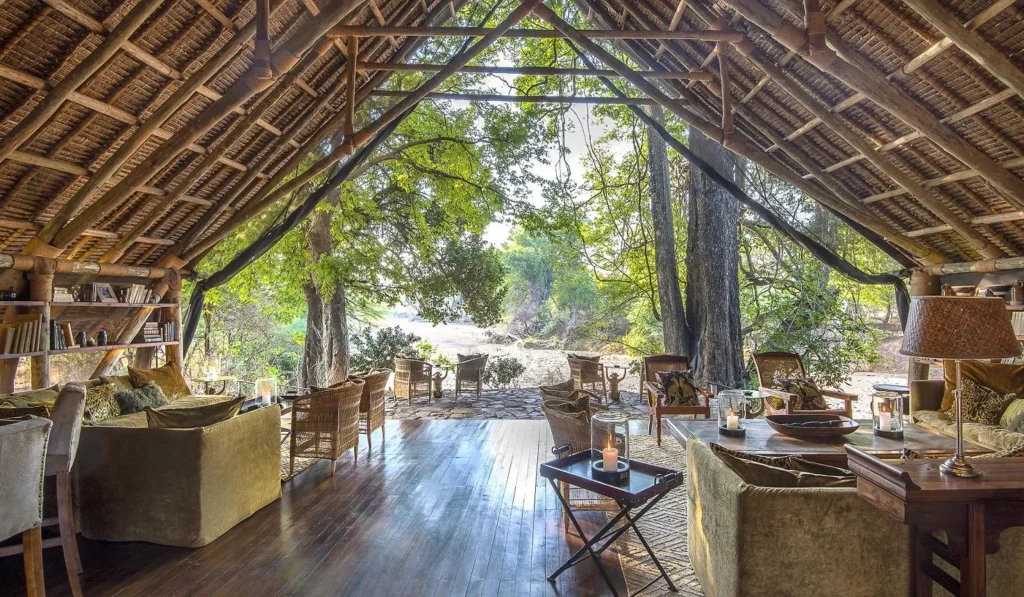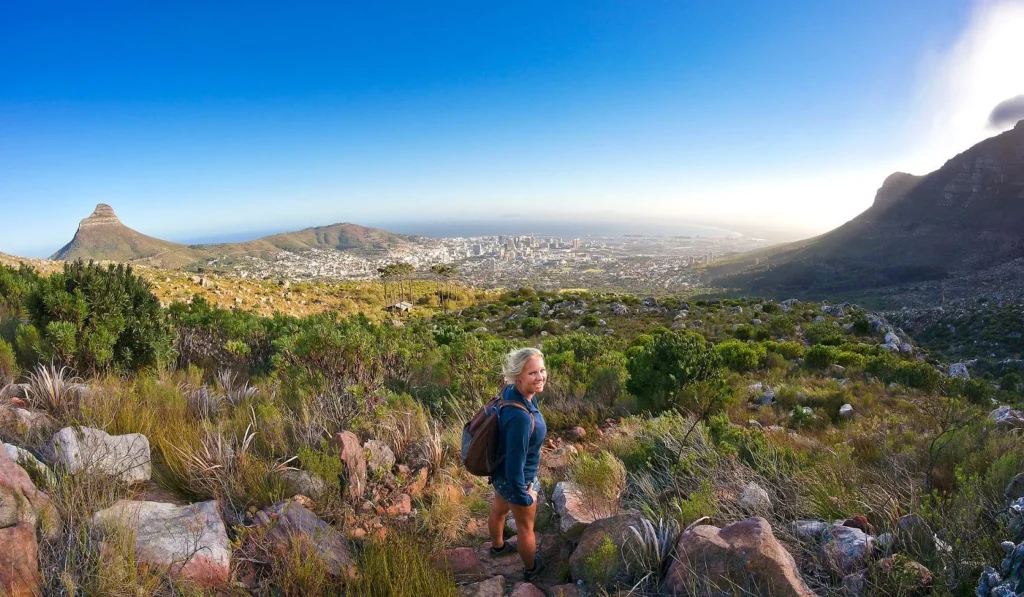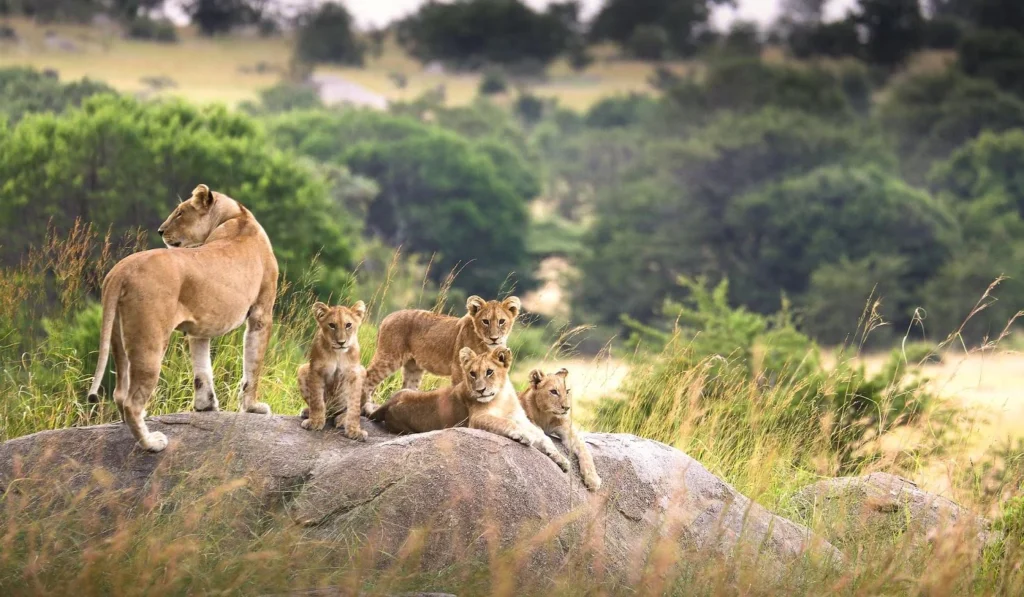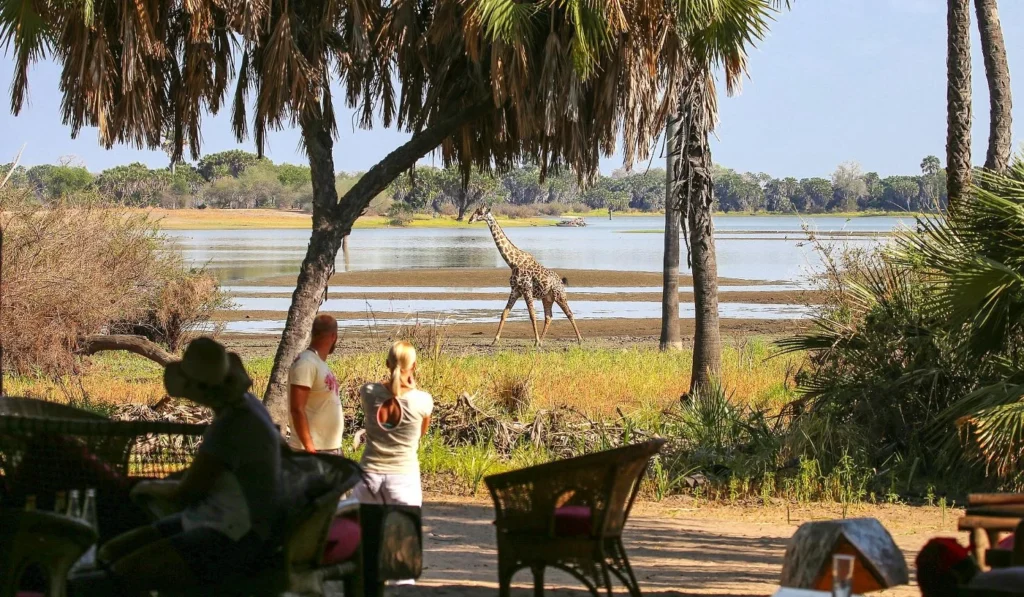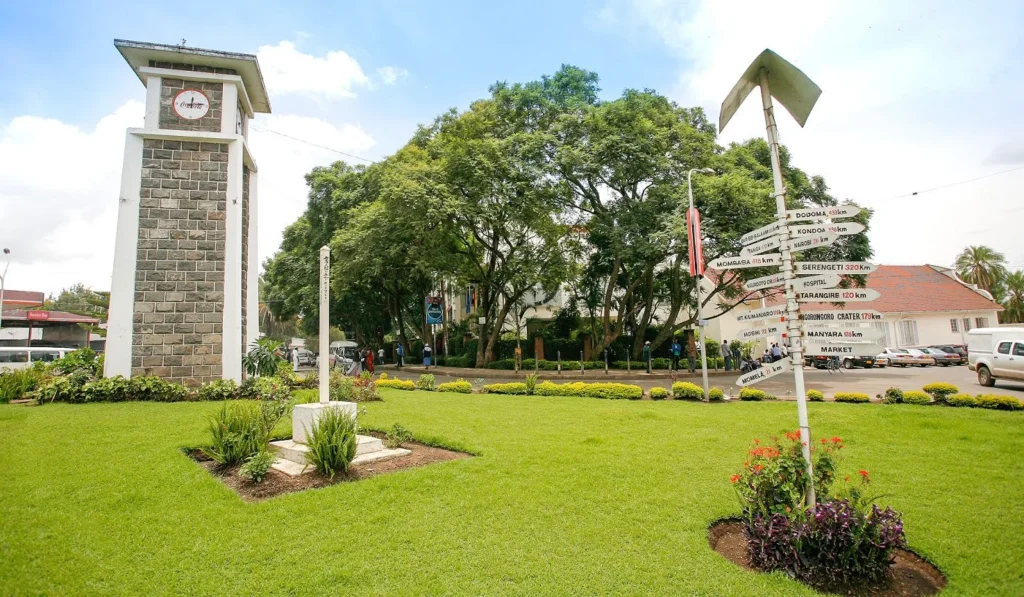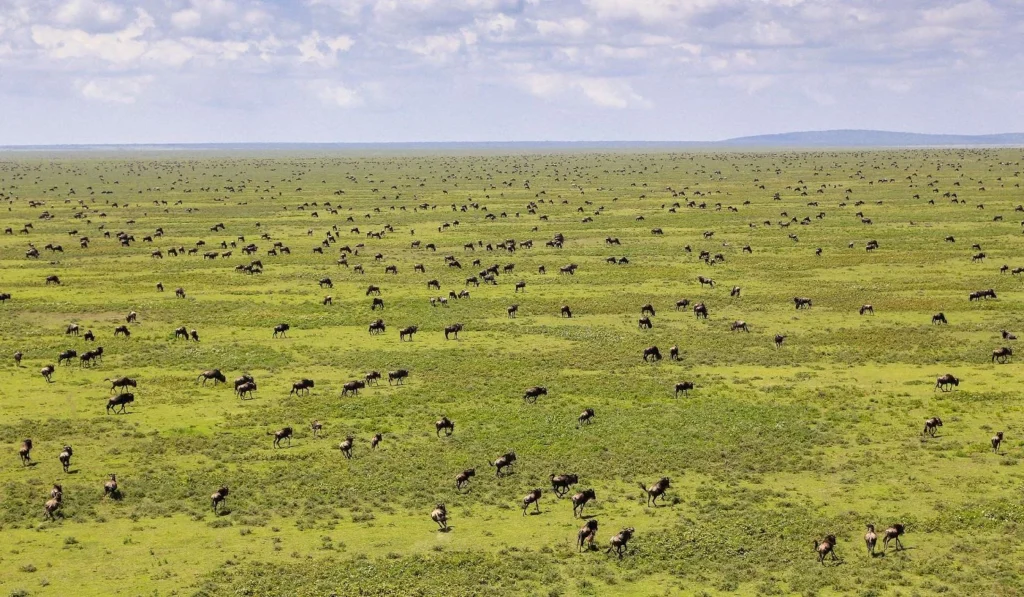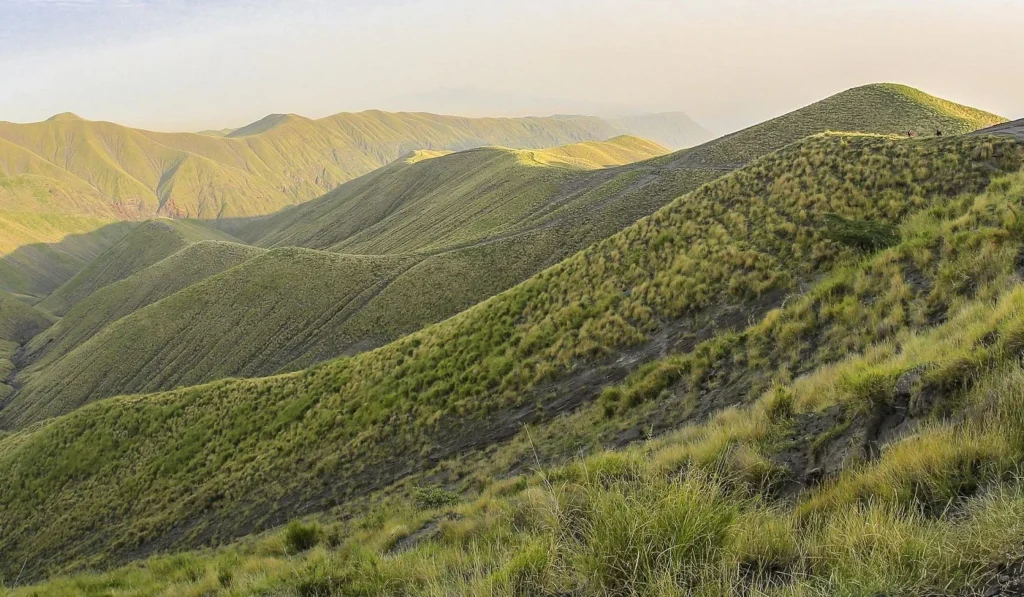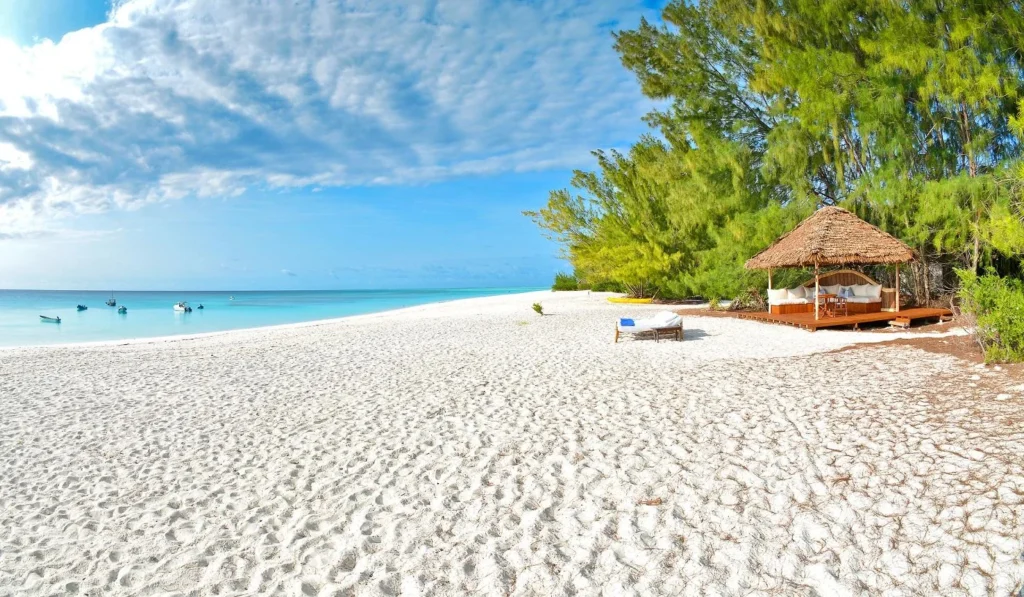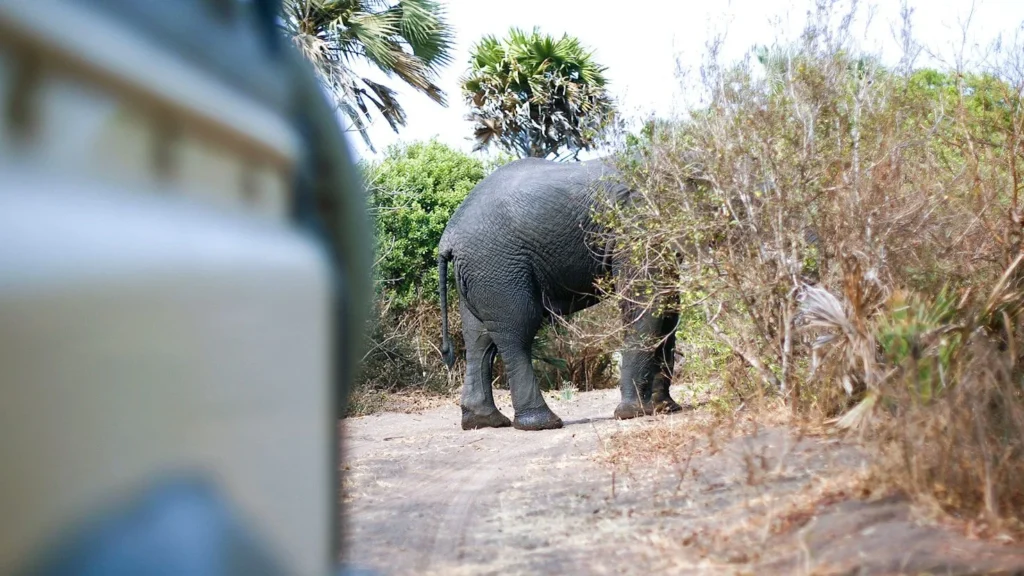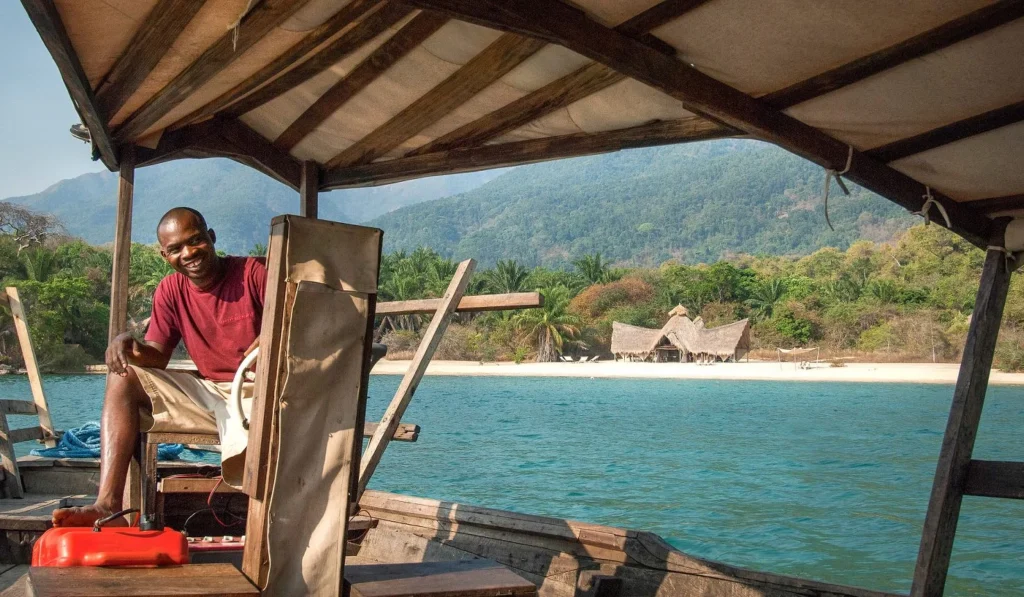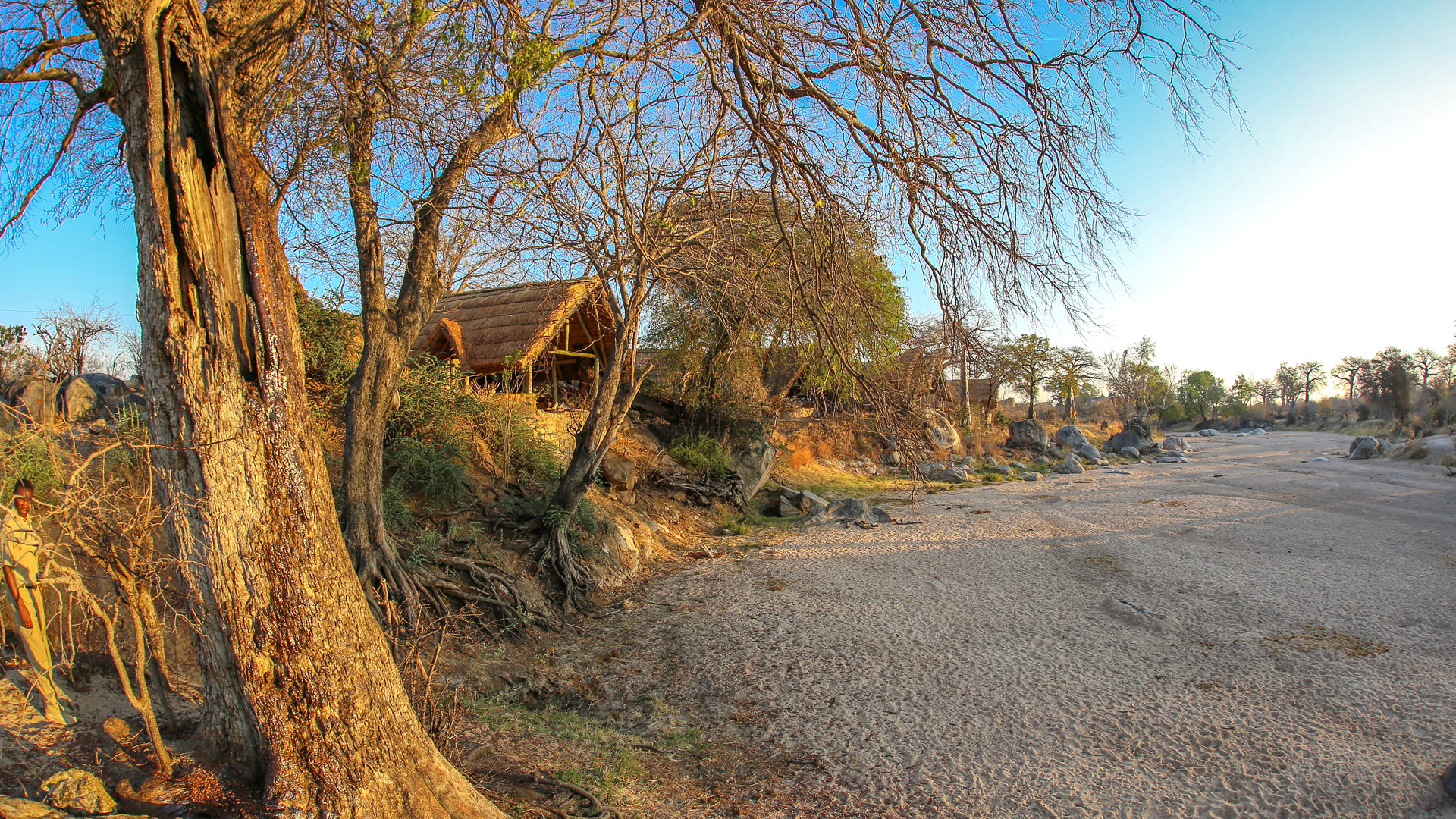
Mwagusi Camp
Mwagusi Camp
is an historic owner-run facility
in the Ruaha area
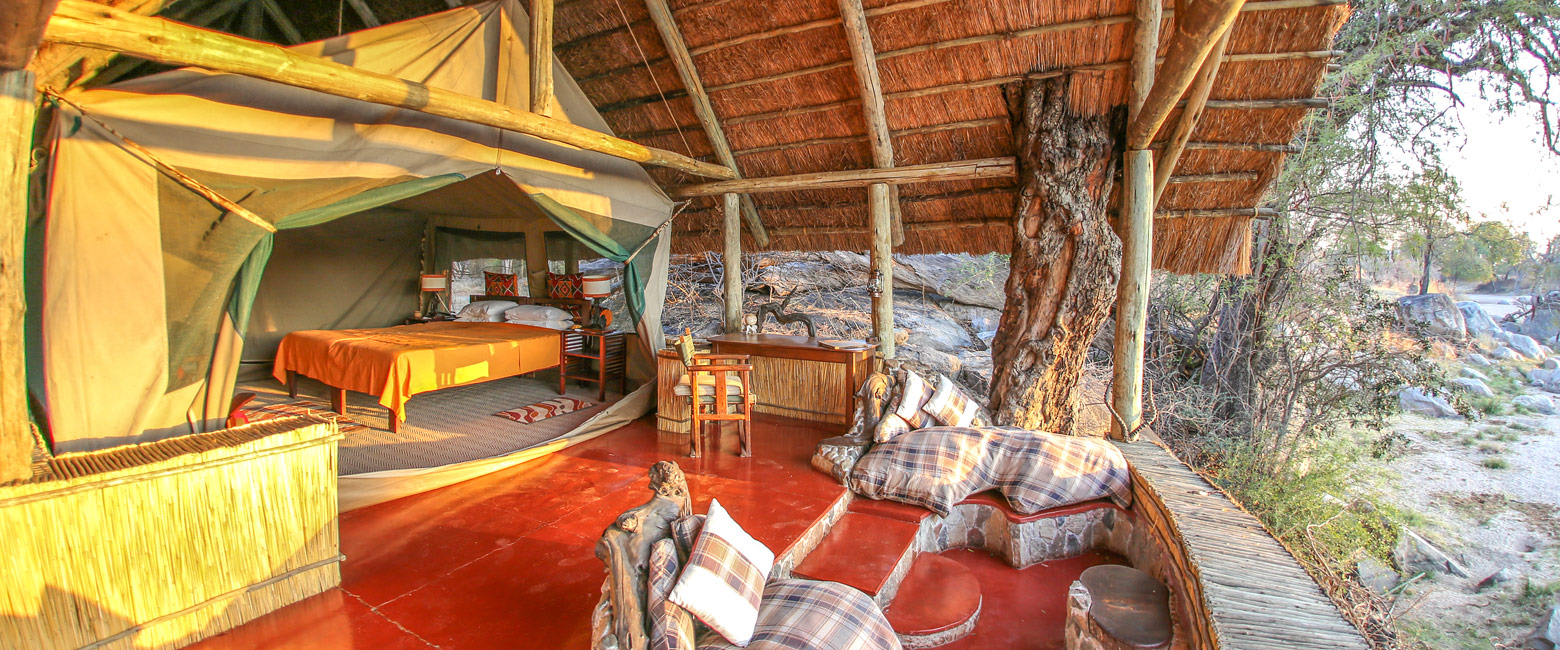
a delightfully old-fashioned place
Mwagusi Camp is located in the Ruaha area of southern Tanzania.
This property is owned and operated by bush legend Chris Fox, a complex character who can be a consummate and affable host, a passionate and illuminating guide, but who can also be reclusive and elusive.
When Mwagusi Camp was established back in 1987, this area was a virtually unexplored backwater. Chris chose the site for both its remoteness and the richness of its wildlife.
These days the camp lies at the heart of the main wildlife viewing area of Ruaha, with several other small properties now sharing his old stomping grounds. It’s a little too busy for him, but by modern safari standards, it’s still a wonderful and relatively secluded area.
Mwagusi Camp itself is a sprawling and quirky place, which has clearly developed organically over time. Rarely have we encountered a network of pathways which is so endless and confusing (despite all the signs).
The large main building is constructed of river-boulder-walls under thatch. It contains open-plan lounge and dining areas, leading out to a pleasantly basic campfire above the sand river. Notably there is almost always a kettle steaming away on the embers of the fire, which is a sure sign of authenticity.
Whilst other more fancy properties have arrived over the years, Mwagusi Camp has remained relentlessly loyal to its roots. This is a proper old-style property, historic in fact. It’s the kind of place that should have a conservation listing and be much more widely appreciated.
Chris is one of the most important people in the history of this reserve, a genuine pioneer and (we are proud to say) a good friend of ours. His adventures are the stuff of legend, especially the years he spent learning to intimately commune with the local elephants!
Unfortunately, Chris is not always around to host guests, that’s not his natural habitat, but if you do get to spend time with him then you can bet it will be enthralling.
The safari operation here set the standards for Ruaha, with a guide and spotter on each vehicle and with sightings having been meticulously logged on every drive for over 40 years, data which is now of huge ecological value.
The staff are absolutely lovely, many of them coming from families which have worked with the Foxes literally for generations.
Mwagusi Camp tends to appeal most to very experienced safari travellers, who appreciate what this place is all about and perhaps have a slight disdain for more flashy modern properties.
Rooms
Guest accommodation at Mwagusi Camp is in thirteen rooms, under very large thatched roofs, with a tented bedroom area, an extensive bathroom area out back and a nice lounge area out front, from which you can watch animals in the riverbed.
The outdoor nature of the bathrooms at this camp are perhaps one of the most significant negatives for some prospective guests. Although we are not particularly squeamish and despite there being very few mosquitoes around for most of the year, we have suggested that these spaces be redesigned in such a way that would make more nervous guests feel totally at ease. Chris says he’s working on it.
Animals in camp
The magic of this particular location, and the reason that Chris chose to site his camp here, is that the Mwagusi Sand River runs through a pair of steep bends. Where it crosses the faulted bedrock, subterranean water is forced to the surface to form clear pools, which serve as a magnet for wildlife.
As the leisurely days pass at Mwagusi Camp, you are likely to see a procession of small herds of impalas and kudus come down to drink, along with vervet monkeys, baboons and a wide range of birds. At night the channel can become very active, with elephants, lions, leopards, spotted hyenas and other creatures using the riverbed as a major thoroughfare.
Our Greg told us this : “I remember once staying here on the first night of a trip, lying awake through the night as elephants, lions and hyenas kicked up an incredible racket. The banks of the river seem to amplify and echo the sounds in a quite extraordinary way. I didn’t get much sleep, but it was a price well worth paying.”
Activities
Mwagusi Camp provides the following guided activities, not all of which are necessarily included in the price …
- Vehicle safari
- Walking safari
- Balloon safari: not included
- Bush meals
- Night vehicle safari
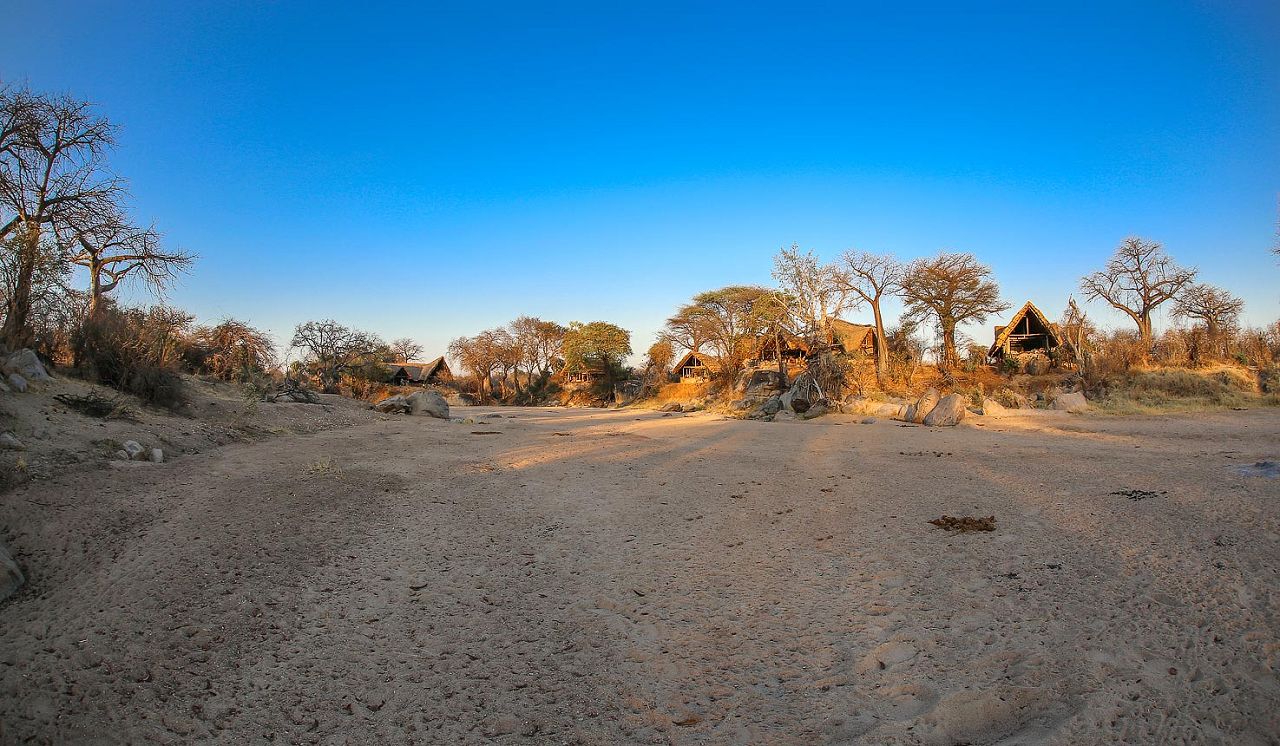
Gallery
Map
Despite being one of the best reserves in Africa, Ruaha tends to feature in a remarkably small proportion of trips, mainly because it is obliged to compete with the Serengeti region. It is one of those places that tends to appeal most to more experienced safari travellers.
The usual stay duration is 3-5 nights in one camp or 5-12 nights in two or three camps.
Safari planning
Ruaha is most commonly combined in trips with other safari areas across Tanzania, like Serengeti or Selous (Nyerere), often in addition to the tropical beaches of Zanzibar, Pemba or Mafia islands.
Since around 2018, with the opening up of ever more diverse sectors within Ruaha, we have steadily increased the number of nights here. Most trips now combine two lodges over around six nights, with some trips extending to nine or more nights in three or even four different lodges.
Can you let Ruaha completely replace Serengeti in your trip? That has become the burning question. For ever more people the answer is a very definite yes.
Seasonality
The classic time to visit Ruaha is generally considered to be during the Jun-Oct dry season, when the wildlife is focused on the river and easy to view. But there are also good reasons to visit during other months.
Getting there
Ruaha is almost always reached by light aircraft. To the south and east there are daily services in both directions (Dar, Selous, Ruaha). Connections with the north are slightly less predictable, but usually operate daily (Serengeti, Manyara, Tarangire, Arusha, Ruaha, Selous, Dar). There are also services to and from the west (Ruaha, Mufindi, Katavi, Mahale).
It is possible to include Ruaha in a private-guided overland safari, in combination with Mikumi, Udzungwa and Selous, but the routing includes a lot of busy main road miles, causing this style of safari to fade since around 2015.
common to combine two or even three lodges
let us know your thoughts about Tanzania
and we will help you create the perfect safari
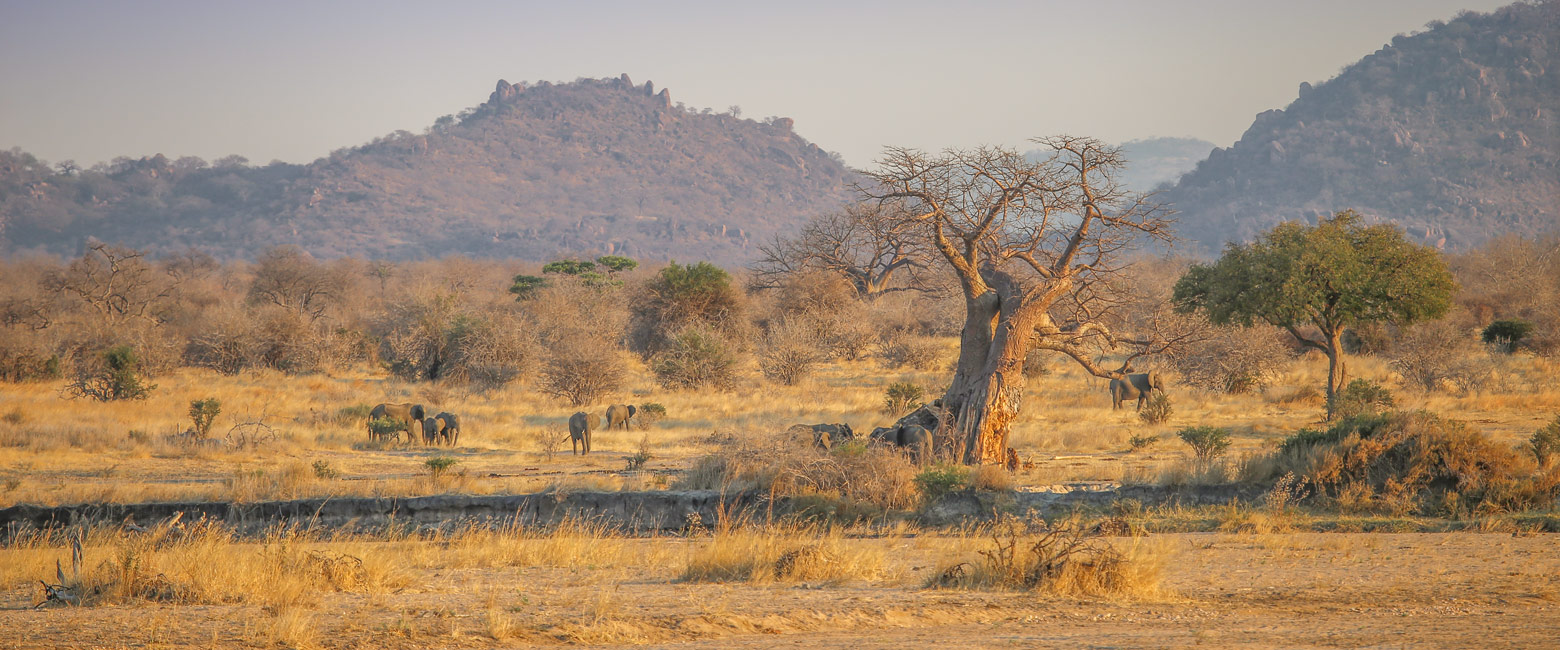
Extraordinary tailor-made adventures,
from earthy and edgy to easy and extravagant
From around USD 2500 per person, you set the ceiling
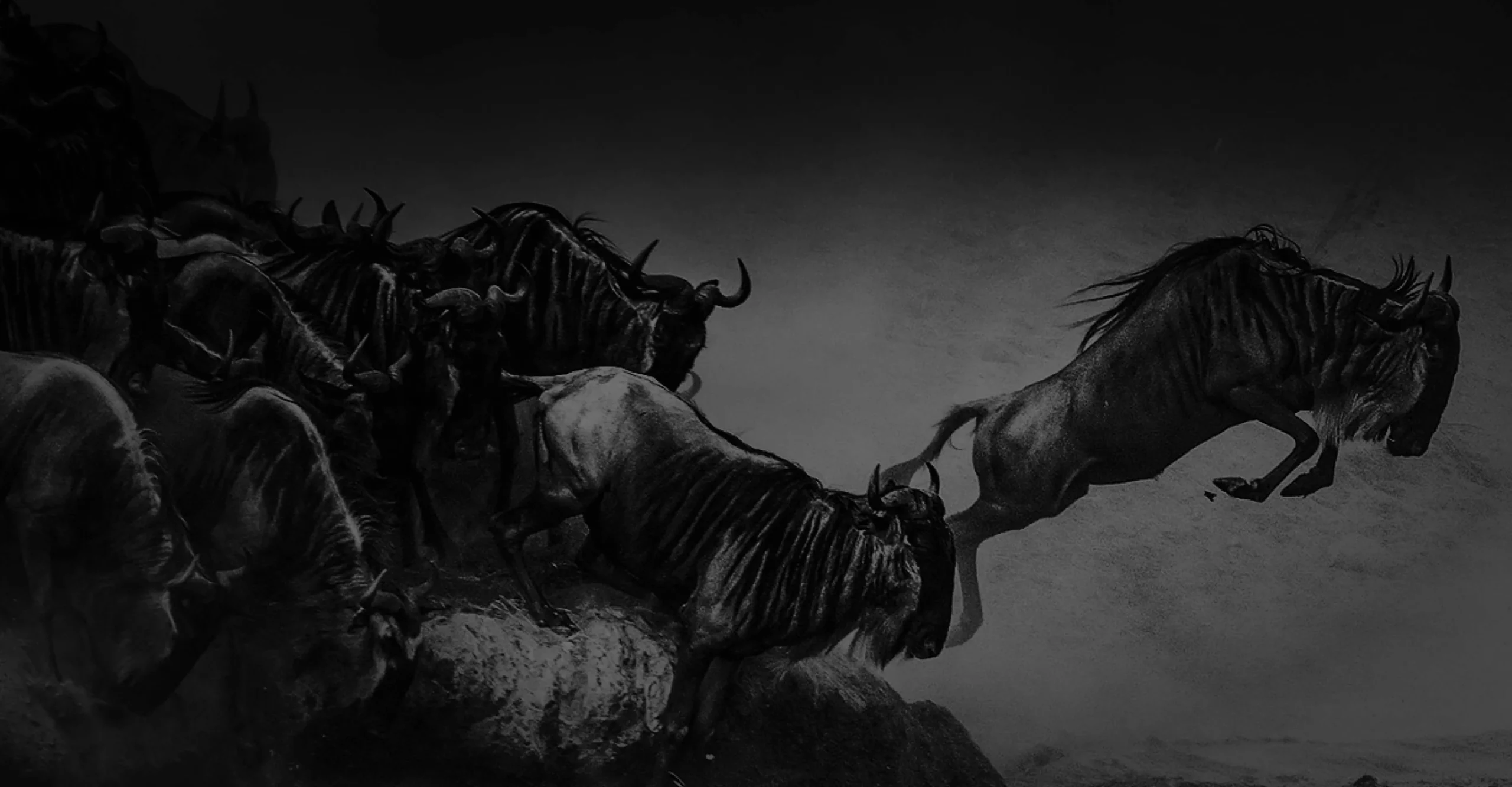
Get started on your trip
It’s never too soon to get in touch, we are here to help with every stage of your planning.
Sample Trips
Here are some of our popular trip shapes
Best Lodges
We regularly inspect and photograph all of the the best lodges, to ensure that we always recommend the most suitable options
Key Locations
Take a look around related locations. Click ‘View more’ to explore locations further afield.






































